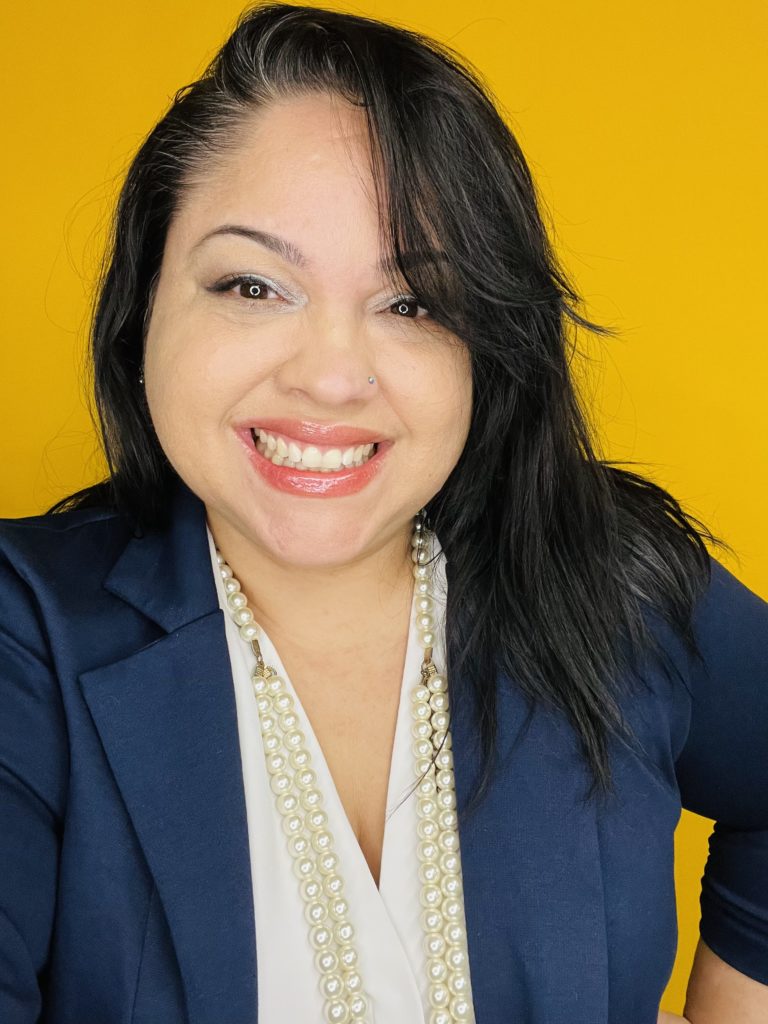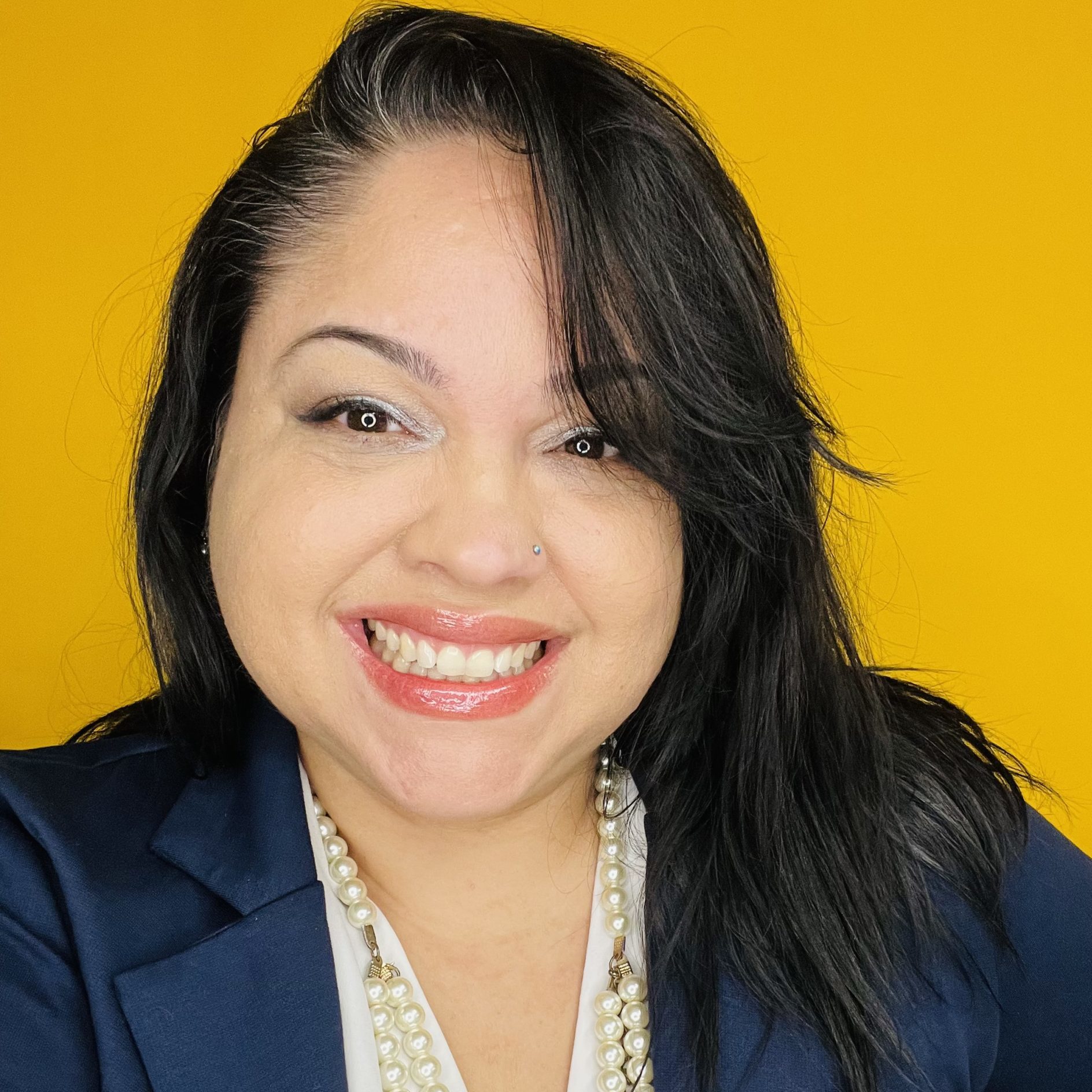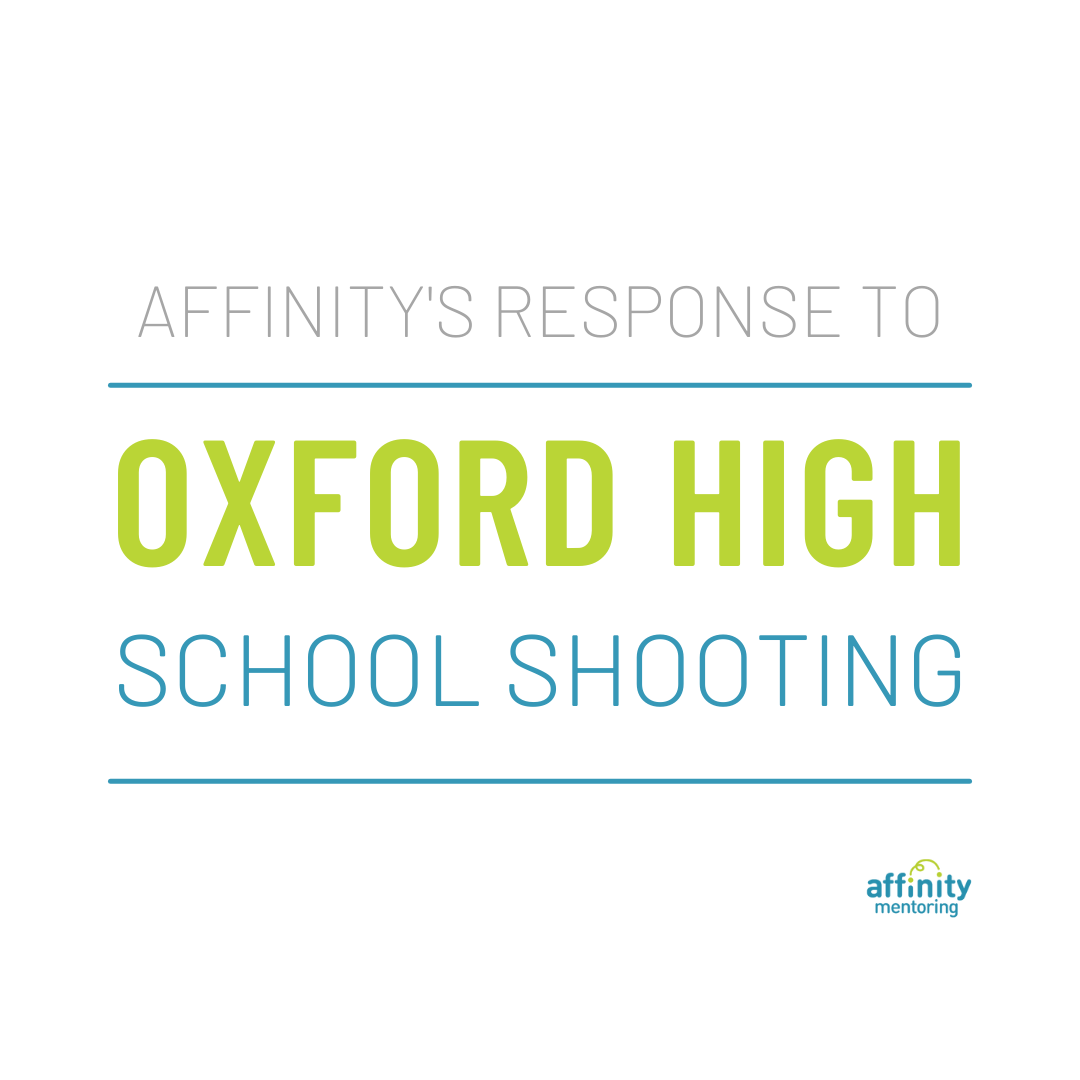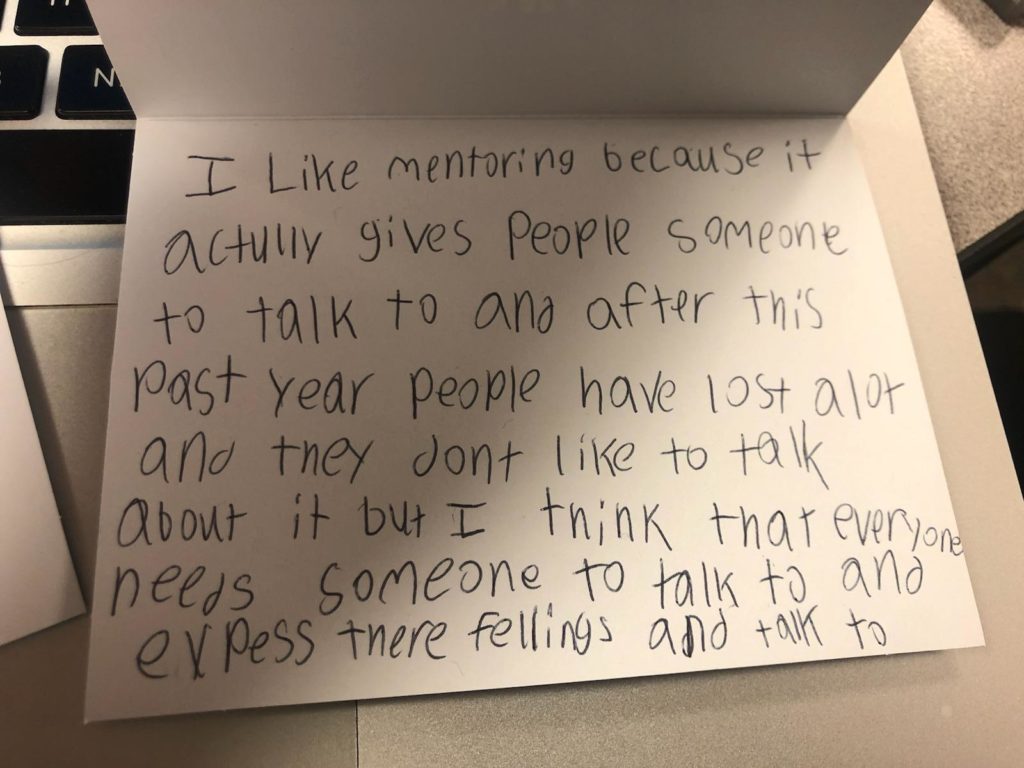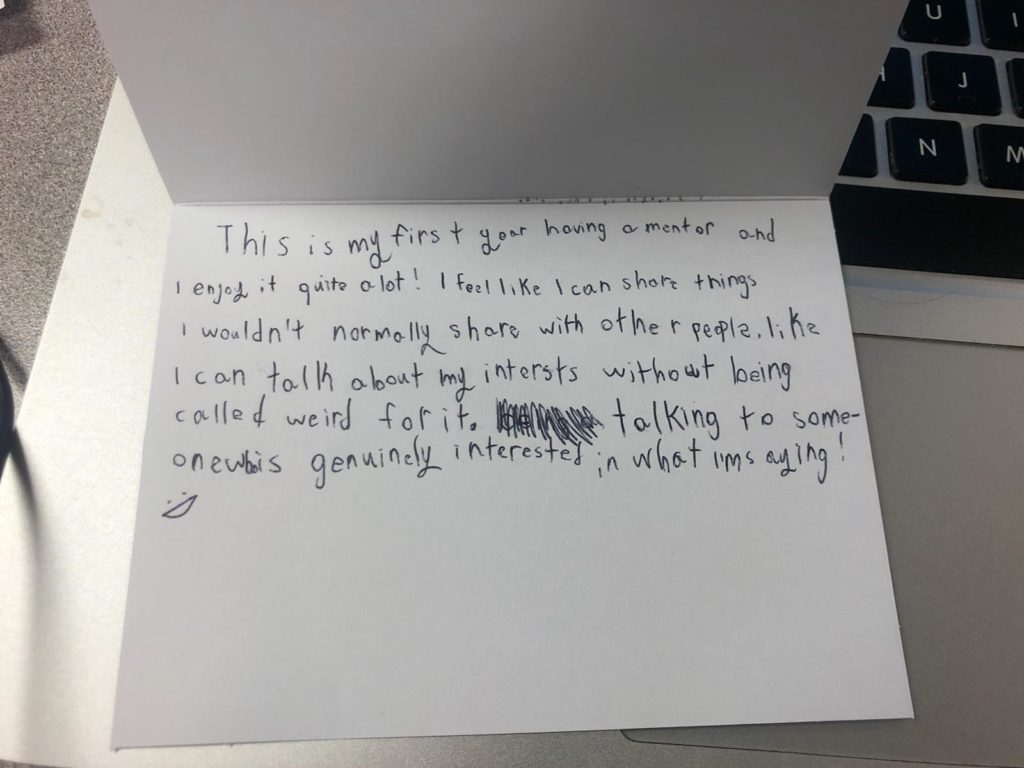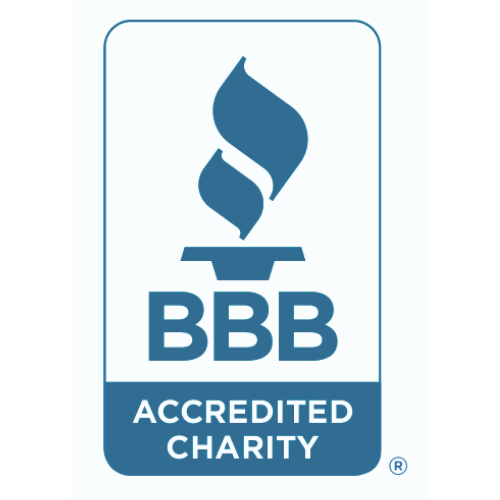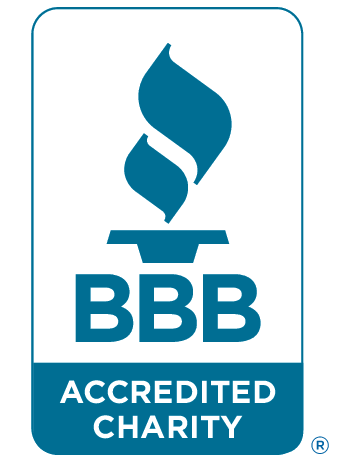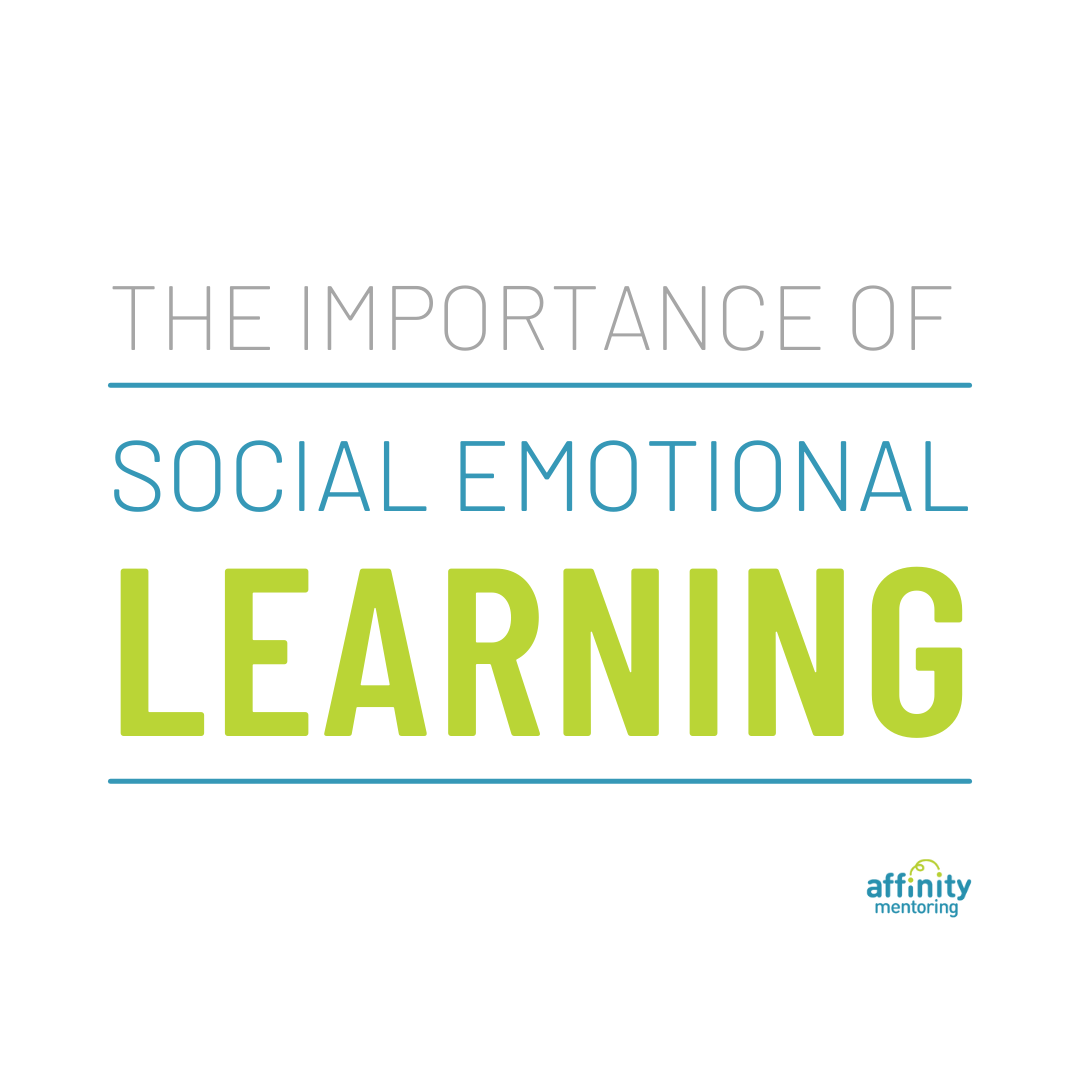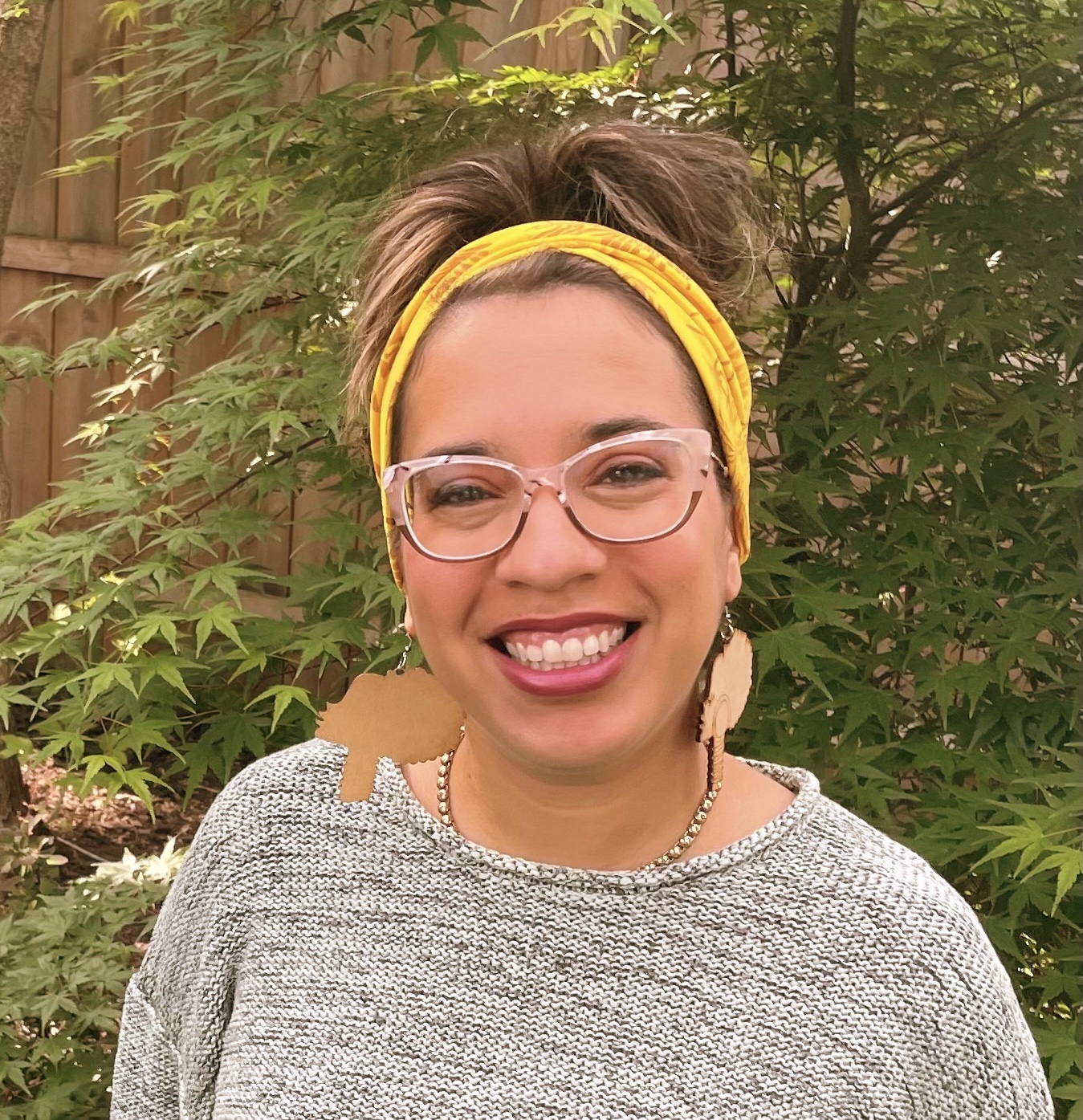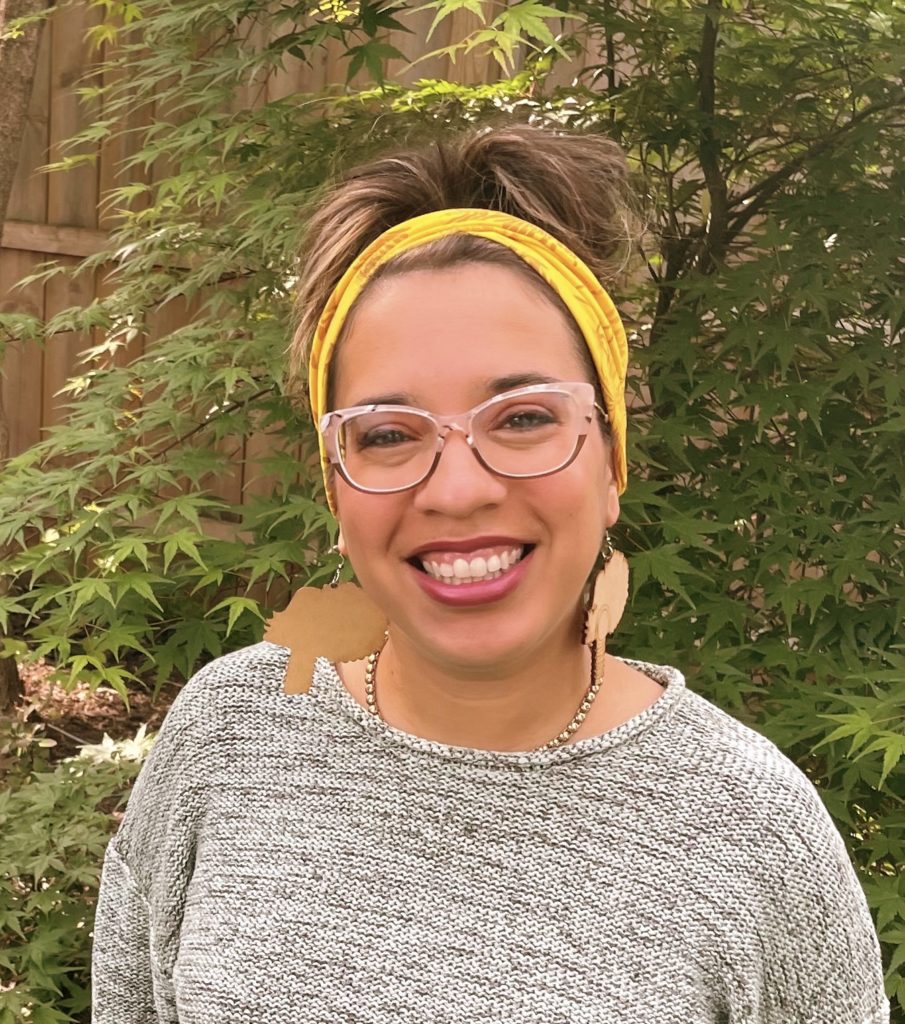October 4, 2021 | By Cassandra Kiger, Executive Director
Social Emotional Learning and Middle School In our last newsletter we introduced how critical Social Emotional Learning is to a healthy life, including in academics, and why we are putting so much focus into SEL skills during mentoring. As we work to ensure that our programming has successful short-term and long-term outcomes for students and families, and that we continue to use relevant research to guide our programming, we have spent significant time researching what different age groups might need in mentoring, including middle schoolers, like those at our Burton and Godfrey-Lee Middle School Sites.
Does anyone look back at middle school and remember a time of certainty and ease? These are foundational years that encompass social and emotional challenges, changes in self-esteem, changing relationships with peers and caregivers, and generally a lot of hormones. Academically, middle school shows some of the highest declines in student outcomes, especially students of color and those from low-income households, who face extra challenges. Some of these challenges are due to systemic issues that are embedded into our white, western view of school systems (this is not focused on a specific school system, but the overall school system). Many students report that they do not even feel like they “fit” in the schools they attend, as they might not feel a sense of belonging, purpose, and empowerment in the educational system. We can impact these realities through ensuring mentoring is a space of belonging, safety, and acceptance; putting student voice and input at the forefront of our work and decisions; and focusing our efforts on supporting student growth in Social Emotional Learning, Leadership Skills, and Self-Esteem.
We do not take our research lightly. We are making renewed efforts to do our own organizational and individual work to make sure that we do not perpetuate students feeling like they “don’t fit” when they come to mentoring, whether that be because of their race or ethnicity, their country of origin, their gender identity or sexual orientation, if they identify as differently-abled, or for any other reason they may feel “different”. Research consistently shows us that when students feel that they are fully accepted for who they are, that they have safe adults around them that care for them, accept them wholly, and they can go to for support and help, they succeed in many other areas of life, including academics.
Again, all of this we are pairing closely with data, which is why we are preparing to administer the Development Assets Profile survey to all of our mentees grades 4-8 (with guardian permission). This assessment is validated and reliable through the Search Institute, and grows out of years of research with millions of young people and is based on Search Institute’s framework of Developmental Assets. It will allow us to:
- Discover the social-emotional strengths and supports that our mentees already have;
- Listen to the perspectives of mentees;
- See our work in the context of mentee’s own strengths as well as the supports they have (or don’t have) in their families, schools, organizations, and community; and
- Gain a road map to guide us in proactive and focused planning to increase positive outcomes.
We will continue to make our work transparent and share data in appropriate ways so that you can see the “why” behind the “how” at Affinity Mentoring, and can partner alongside us in this important work. Look out in the coming year for opportunities for mentors and community members to learn alongside our team as we continue to grow.
Bibliography:
Fite, P., Frazer, A., DiPierro, M., & Abel, M. (2019). Youth Perceptions of What Is Helpful during the Middle School Transition and Correlates of Transition Difficulty. Children & Schools, 41(1), 55–64. https://doi-org.ezproxy.gvsu.edu/10.1093/cs/cdy029
Hughes, J. N., Im, M., Kwok, O., Cham, H., & West, S. G. (2015). Latino Students’ Transition to Middle School: Role of Bilingual Education and School Ethnic Context. Journal of Research on Adolescence (Wiley-Blackwell), 25(3), 443–458. https://doi-org.ezproxy.gvsu.edu/10.1111/jora.12142
Youth-Nex, and Youth-Nex. “What Do You Know About Young Adolescent Development?” Youth, 15 Sept. 2020, youthnexblog.curry.virginia.edu/?p=1963.
YOUTH VOICE & SCHOOL CLIMATE & CULTURE IN THE MIDDLE GRADES. Remaking Middle School, education.virginia.edu/sites/default/files/files/Youth_Nex_files/4b.%20Climate%20&%20Culture_Rationale%20Statement.pdf.
